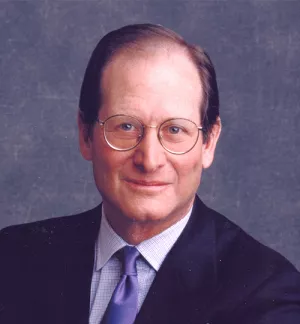Siemens has just gone through the largest bribery scandal in history, paying more than $1.5 billion in fines and penalties, restating earnings by more than $500 million, incurring more than $850 million in forensic expenses to investigate itself and sidelining a whole generation of top board and business leadership.
And Siemens had a strongly worded code against bribery. It just lacked principles, practices and, ultimately, a culture to make that code a reality.
The extreme Siemens example came to mind as I read stories about the large numbers of HBS students (more than 400) who last week signed the "MBA Oath" at graduation in response to the dramatic business failures of the past year. Signers of this oath promise during their careers to, among other things, "act with utmost integrity and pursue my work in an ethical manner;" to "safeguard the interests" of shareholders, coworkers, customers and society; to "understand and uphold, both in letter and in spirit, the laws and contracts governing my own conduct and those of my enterprise;" and "to create sustainable economic, social and environmental prosperity worldwide."
The HBS student who organized the effort, Maxwell Anderson, and the HBS faculty members who inspired him, Rakesh Khurana and Nitin Nohria, deserve great kudos for raising in a powerful, symbolic way critical issues for MBA students about building a foundation of integrity for business performance-student commitments that are echoed at other business schools and now resonate in major media take-outs. (Both the New York Times and The Economist published lengthy stories on the HBS oath.)
But oaths (and codes) are empty, even hypocritical rhetoric if they're not backed by more, as the Siemens case so starkly shows. In this period when trust in capitalism and business decision-making has been severely eroded, the question is whether the MBA oath will (along with many other developments) effect consequential change. Mr. Anderson himself recognizes this challenge. On the Oath's website, he acknowledges that the oath is but "a first step."
The MBA students who follow this year's oath-takers might engage with HBS faculty in at least three areas at the Business School to leverage the deep concerns underlying the oath towards meaningful action.
In light of the dramatic business failures of this decade--from Enron to the credit crisis--how should the mission of the business school and its fundamental curriculum be changed? Do business in society, risk and integrity issues play a prominent enough role in all business courses? Is having just one central business ethics course (the estimable Leadership and Corporate Accountability) enough? Doesn't the faculty owe itself, its alums and its students a candid, systematic, in-depth assessment of this fundamental question? Students, wishing to go beyond the oath, could press for such a considered response.
A related question students could press is how the HBS faculty brings its powerful collective intelligence to bear on what happened in the global economy in the past two years. What were the causes, what are the remedies? Obviously, individual faculty members are concerned with--and writing about--these issues. But does the school itself need to stand up and acknowledge the watershed events which will reshape business for years to come? Should the school organize serious intellectual analysis of the crisis in the form of major conferences or organized volumes of essays? Isn't an institutional or quasi-institutional response needed given the severity of a crisis relating to the core of a business education?
An example of this is Restoring Financial Stability: How to Repair a Failed System, Viral Acharya and Matthew Richardson eds. (John H.Wiley & Sons, 2009). This is a volume organized by the dean and vice dean of NYU's Stern School of business, with essays from 33 faculty members which describes key problems, analyzes causes and suggests solutions.
Finally, students deeply and properly concerned about how central business and society issues should be addressed by contemporary business leadership could press to increase the momentum for joint degrees and joint courses with the Harvard Law School and the Harvard Kennedy School. All three schools could benefit greatly from teaching students multiple intellectual angles of attack on their respective core problems. Team teaching from all three schools is essential on fundamental issues like climate change, international trade, health care or the legal, economic and country risk and economic dimensions of crossborder transactions. Yet, despite a recently renewed HBS-HKS effort truly to create an integrated joint degree program, the cross-professional school aspirations are, after many years of discussion, still far from a reality.
Of course, beyond these examples of how the concerns underneath the MBA Oath might be moved forward in a professional school setting, there is the much larger issue of how they can have impact in practice in real business institutions. With the crisis in capitalism, new graduates will have an opportunity to observe-- and perhaps in a limited way to help shape--whether top business leadership can meet today's challenges of responding to the outpouring of proposed regulation, balancing risk-taking (creativity and innovation) with risk-management (financial discipline) and fusing high performance with high integrity. But current students might also press for systematic discussions and debates with alums at HBS--moderated with hard-, not softball questions--to explore these issues from a practical business perspective, a dialogue that only had some "green shoots" at last year's centennial event.
Heineman, Ben. “Going Beyond MBA Oaths.” Harvard Business Review, June 9, 2009



